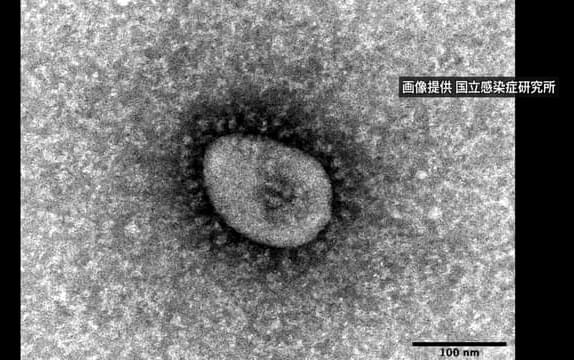If used improperly, the metaverse could be more divisive than social media and an insidious threat to society and even reality itself.


- IMAGINARY
ANTHEM: “Anthem of the Human empire“
same tune as “The Flag Parade” by John Williams from Star Wars Episode I
- MODERATION POLICY
1) Keep comments civil.
2) Ideological and political comments are not allowed.
3) Comment section under explicit political videos will be deactivated. Same with old toxic comment sections.
4) Comments under video with mild political implications will be reviewed first.
5) SPAM = BAN
6) Warning at first infraction, recidivists will be blocked.
7) Serious offenders will be blocked with no warning.
8) Insult me and you will be blocked with no warning.
9) “Satire” is not an excuse made using Flag 3D screensaver, available here:
http://www.3planesoft.com/holidays-screensavers/flag-3d-screensaver/
- CONTACTS (I speak Italian and English)
FACEBOOK http://www.facebook.com/TheFlagAnthemGuy-1385863208300909/
TWITTER http://twitter.com/Flag_Anthem.
DEVIANTART http://theflagandanthemguy.deviantart.com/
REDDIT: http://www.reddit.com/user/TheFlagandAnthemGuy/
TUMBLR: tumblr.com/blog/theflagandanthemguy.
- BACKUP CHANNELS:
https://www.youtube.com/channel/UCxxu3zAxxxIMFdEJFCr_Xcg.
https://vid.me/TheFlagandAnthemGuy.
http://www.dailymotion.com/Trustnoidiot
“DEATH DEFANGED Cryonics, Cryothanasia and the Future of Sentience” with David Pearce, Author, Philosopher and well-known TransHumanistThis service will be on ZOOM and YouTube Live Stream only, not in person.
Zoom at 6:00 PM Eastern Time.
Live Stream at 7:00 PM Eastern Time.
Stay after the close of the YouTube streaming for the Zoom After Party until??:00 pm. Enjoy fellowship in the extended discussions with Neal and Immortalists & Friends from Around the World, sharing bold ideas on health, longevity, and technology!(Note: Mr. Pearce was scheduled last month to give a presentation but due to circumstances beyond our control we did not have that presentation. We look forward this month to have David Pearce join us!)David Pearce is the author of 4 major works:“The Hedonistic Imperative”, “The Biointelligence Explosion: How Recursively Self-Improving Organic Robots will Modify their Own Source Code and Bootstrap Our Way to Full-Spectrum Superintelligence”, “Singularity Hypotheses: A Scientific and Philosophical Assessment”, & “Can Biotechnology Abolish Suffering?”
The Hedonistic Imperative (1995) advocates the use of biotechnology to abolish suffering throughout the living world. In 1998, he co-founded the World Transhumanist Association (H+) with Nick Bostrom. Transhumanists believe in the use of technology to overcome our biological limitations.
Currently, Pearce is a fellow of the Institute for Ethics and Emerging Technologies, and sits on the futurist advisory board of the Lifeboat Foundation. He is also the director of bioethics of Invincible Wellbeing and is on the advisory boards of the Center on Long-Term Risk, the Organization for the Prevention of Intense Suffering and since 2021 the Qualia Research Institute. Please share this event with someone that you care about. Would you like to make a Donation to Perpetual Life? Your donations help us grow & improve our services. To donate, go to our website http://Perpetual.Life and use the PayPal button at the top right of the page. Thank you for your generous donations, we appreciate it immensely!“Our task is to make nature, the blind force of nature, into an instrument of universal resuscitation and to become a union of immortal beings.“
- Nikolai F. FedorovWe hold faith in the technologies & discoveries of humanity to END AGING and Defeat involuntary Death within our lifetime. Working to Save Lives with Age Reversal Education. ========== Perpetual Life Creed ==========We believe that all of life is sacred and that we have been given this one life to make unlimited. We believe in our Creator’s divine plan for all of humanity to have infinite lifespans in perfect health and eternal joy, rendering death to be optional. By following our Gospel we achieve eternal life creating a heaven here on earth. We follow Nikolai Fyodorov, who taught that the transcendence of the creator will only be solved when humanity in our unified efforts become an instrument of universal resuscitation, when the divine word becomes our divine action. And we follow Arthur C. Clarke, who said “The only way to discover the limits of the possible is to go beyond them into the impossible.“And so, we enter each day energized in Spirit and empowered by the words of our prophets to live in joy, serving our creator and all of mankind, Forever and Ever.==========Wishing you Perfect Health and Great Longevity!Perpetual Life, a science-faith based church is open to people of all faiths & belief systems. We are non-denominational & non-judgmental and a central gathering place of Immortalists & Transhumans. What unites us is our common faith, belief and desire in Unlimited Life Spans. We are located in Pompano Beach FL at 950 South Cypress Road.

A single chemical could be responsible for whether people go bald or not, a new study has found.
In the UK, approximately two thirds of men will face male pattern baldness. The study says the discovery of the chemical could “not only treat baldness, but ultimately speed wound healing”.
Researchers at the University of California, Riverside, found that a sole chemical is responsible for hair follicles dividing and dying.
China’s fully reusable version of the Long March 9 super heavy-lift rocket, currently in design could blow the SpaceX Starship and even the Artemis Block 2 out of the water both in regards to cost and performance. See how SpaceX may yet counter this. Latest news on re-entry for China’s Long March 5B booster too.
Awesome deals for long term food supplies for those long missions to deep space (or prepping in case your spaceship crashes: See the Special Deals at My Patriot Supply: www.PrepWithGreg.com.
For gardening in your Lunar habitat Galactic Gregs has teamed up with True Leaf Market to bring you a great selection of seed for your planting. Check it out: http://www.pntrac.com/t/TUJGRklGSkJGTU1IS0hCRkpIRk1K

The platform, still in the early development phase, is called Druglike, according to a press release that circulated on July 25. Its goals are ostensibly lofty, but the details are extremely sketchy, and Shkreli’s intentions have already drawn skepticism. It’s also unclear whether the enterprise will run Shkreli afoul of his lifetime ban from the pharmaceutical industry, which stemmed from the abrupt and callous 4,000 percent price hike of a life-saving drug that made him infamous.
Shkreli, who is named as a cofounder of Druglike, says the platform aims to make early-stage drug discovery more affordable and accessible. “Druglike will remove barriers to early-stage drug discovery, increase innovation and allow a broader group of contributors to share the rewards,” Shkreli said in the press release. “Underserved and underfunded communities, such as those focused on rare diseases or in developing markets, will also benefit from access to these tools.”
Generally, early-stage drug development can sometimes involve virtual screens to identify potential drug candidates. In these cases, pharmaceutical scientists first identify a “target”—a specific compound or protein that plays a critical role in developing a disease or condition. Then researchers look for compounds or small molecules that could interfere with that target, sometimes binding or “docking” directly to the target in a way that keeps it from functioning. This can be done in physical labs using massive libraries of compounds in high-throughput chemical screens. But it can also be done virtually, using specialized software and a lot of computing power, which can be resource-intensive.

NASA plans to bring 30 Martian rock samples back to Earth in 2033, the agency said Wednesday — and is sending two small helicopters to help the mission.
The Perseverance rover, which landed on Mars in February 2021, has so far collected 11 samples as part of its hunt for signatures of ancient life.
But bringing them back for detailed lab study on Earth is proving to be a highly complex task.

A new study finds that decarbonization pathways need to incorporate more efficient electric heating technologies and more renewable energy sources to minimize strain on the U.S. electric grid during increased electricity usage from heating in December and January. Otherwise, harmful fossil fuels will continue to power these seasonal spikes in energy demand.
Buildings’ direct fossil fuel consumption, burned in water heaters, furnaces, and other heating sources, accounts for nearly 10 percent of greenhouse gas emissions in the United States. Switching to an electric system that powers heating through renewable energy sources, rather than coal, oil, and natural gas—the process known as building electrification or building decarbonization—is a crucial step towards achieving global net-zero climate goals.
However, most building decarbonization models have not accounted for seasonal fluctuations in energy demand for heating or cooling. This makes it difficult to predict what an eventual switch to cleaner, all-electric heating in buildings could mean for the nation’s electrical grid, especially during peaks in energy use.

The World Health Organization says Japan recorded the highest global number of new coronavirus cases in the seven days through Sunday.
The WHO on Wednesday released an update on new COVID-19 cases reported during the week from July 18 to 24.
The report says the number of weekly cases in Japan stood at 969,068 — an increase of 73 percent from the previous week.
